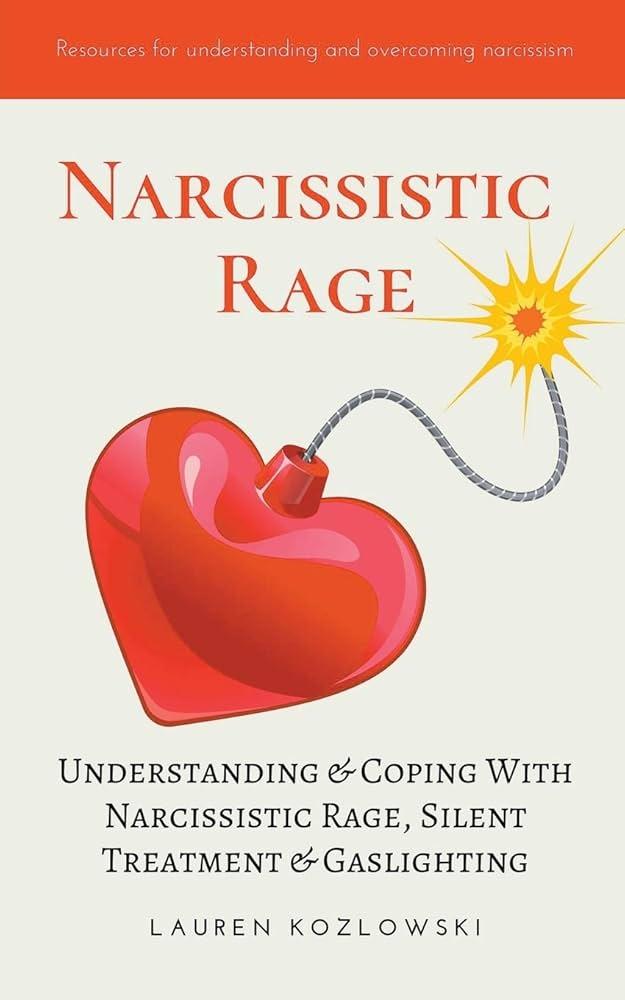Have you ever witnessed someone suddenly lash out in a way that feels intense, personal, and almost shocking? That explosive burst of anger, often fueled by deep-seated feelings of vulnerability, might be what psychologists call narcissistic rage. In this blog post, we’re going to explore what narcissistic rage really means, especially when it shows up in verbal attacks. Whether you’re trying to make sense of a difficult conversation or just curious about human behavior, understanding this powerful emotional response can help you navigate interactions with more empathy—and maybe even keep your cool when emotions run high. Let’s dive in!
Table of Contents
- What Narcissistic Rage Really Looks Like in Conversations
- Why Narcissistic Rage Turns Verbal Attacks Personal
- How to Stay Calm When Facing Narcissistic Outbursts
- Practical Tips for Protecting Yourself from Verbal Abuse
- Key Takeaways
What Narcissistic Rage Really Looks Like in Conversations
When a narcissist feels their fragile self-image is threatened, their verbal expression can quickly soar into a fury that’s disproportionate to the situation. This rage often isn’t just about the immediate trigger—it’s a defense mechanism designed to protect their ego at all costs. You’ll notice their anger is laced with personal attacks, passive-aggressive digs, and sweeping generalizations meant to destabilize and intimidate. They rarely engage with the actual topic; instead, the conversation derails into a battlefield of *scorched earth tactics* like:
- Blame-shifting to avoid accountability
- Gaslighting, making you question your reality
- Insults disguised as “jokes” to mask hostility
It’s a relentless cycle where their rage serves as a weapon to suppress any challenge to their grandiose self-perception. Understanding this helps you spot the pattern early and respond without getting caught in the emotional whirlwind they create.
Interestingly, beneath the bluster is often a deep sense of vulnerability and fear of exposure. Narcissistic rage emerges from this fragile core, making their verbal attacks feel like an emotional explosion rather than a rational response. Recognizing this can shift your perspective and guide you toward maintaining your calm. By refusing to engage on their terms and setting clear boundaries, you reclaim power in conversations that might otherwise spiral out of control.
Why Narcissistic Rage Turns Verbal Attacks Personal
At the heart of narcissistic rage lies a fragile self-esteem that is easily shattered by perceived slights or criticisms. When triggered, this fragile sense of self unleashes a defensive storm, often manifesting as intense verbal attacks. These verbal assaults feel intensely personal because they are fueled not by objective judgments but by the narcissist’s deep fear of humiliation and loss of control. In essence, the rage is less about the actual words spoken and more about the wound inflicted on their carefully constructed self-image.
Understanding this dynamic sheds light on why narcissistic verbal attacks can feel overwhelmingly targeted and relentless. The aggressor isn’t merely trying to win an argument; they’re attempting to restore their fractured ego. This often results in:
- Exaggerated responses to even mild criticism
- Personalized insults meant to destabilize the recipient
- Projection of insecurities through harsh words aimed at others
Recognizing these signs can help set healthy boundaries and protect your own emotional well-being when dealing with this form of rage.
How to Stay Calm When Facing Narcissistic Outbursts
When confronted with sudden bursts of anger from a narcissist, maintaining your composure can feel overwhelming. The key is to remain detached emotionally without appearing indifferent—this helps to avoid fueling their rage. Focus on grounding techniques such as deep breathing or silently counting to ten. This creates a mental buffer, allowing you to respond thoughtfully instead of reacting impulsively. Remember, their outburst is about their trigger, not your value or actions.
It’s also helpful to prepare yourself with a few mental tools before an encounter escalates. You might:
- Set clear boundaries internally about what behavior you will accept.
- Practice neutral responses like “I see your point” or “Let’s talk when we’re both calmer.”
- Remind yourself that calming down is your priority, not winning the argument.
By grounding yourself and using these strategies, you can protect your peace and help defuse the situation more effectively.
Practical Tips for Protecting Yourself from Verbal Abuse
When faced with verbal attacks fueled by narcissistic rage, maintaining your emotional equilibrium becomes paramount. One effective approach is to set firm boundaries early on—calmly communicate what language and behavior you will not tolerate. It’s also essential to avoid engaging in a debate with the abuser during an outburst. Responding with silence or a simple, non-triggering phrase like, Let’s continue this conversation when things have calmed down,
can help de-escalate the situation and protect your mental well-being.
- Recognize triggers: Notice what tends to provoke the rage and try to anticipate or minimize exposure.
- Practice self-care: Engage in activities that ground and center you, like deep breathing or journaling.
- Seek support: Build a circle of trusted friends or professionals who validate your experience.
- Limit contact: Where possible, reduce your time around individuals prone to verbal abuse.
Remember, your safety—both emotional and physical—must be your priority. When verbal attacks become overwhelming, don’t hesitate to reach out for professional help or explore safe exit strategies from toxic situations. Empowering yourself with knowledge and practical strategies creates a shield that diminishes the impact of narcissistic rage, helping you reclaim your peace and confidence.
Key Takeaways
Wrapping up, understanding narcissistic rage in verbal attacks isn’t just about spotting the warning signs—it’s about empowering yourself to respond with calm and confidence. When you recognize that these explosive outbursts often stem from deep-seated insecurities, it becomes a little easier not to take their words personally. Remember, setting boundaries and practicing self-care are your best tools for navigating these challenging interactions. Stay informed, stay compassionate, and above all, take care of your own emotional well-being. Thanks for reading, and here’s to healthier, happier conversations ahead!

